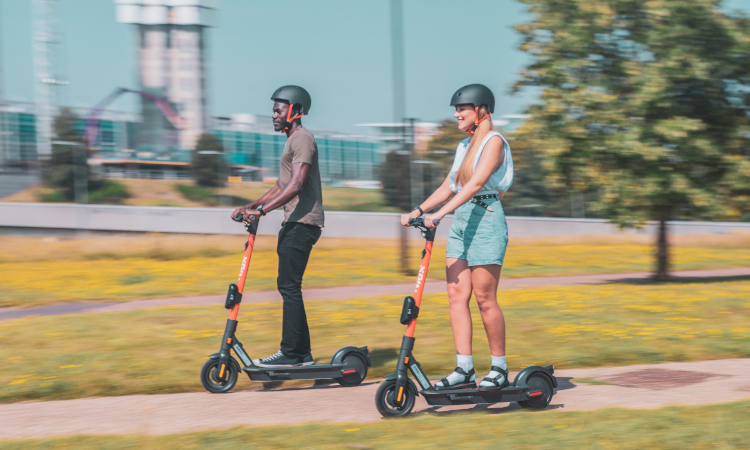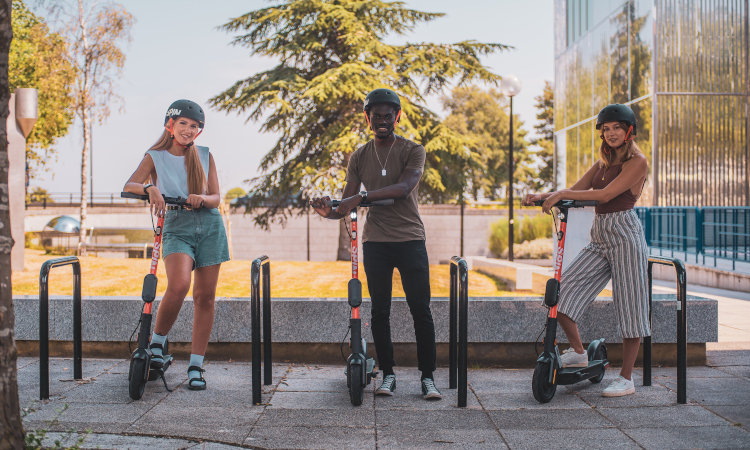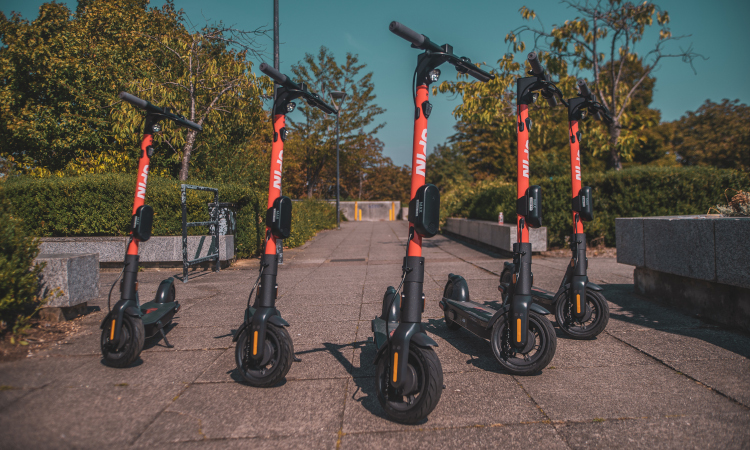What lessons have been learned from e-scooter trials?
- Like
- Digg
- Del
- Tumblr
- VKontakte
- Buffer
- Love This
- Odnoklassniki
- Meneame
- Blogger
- Amazon
- Yahoo Mail
- Gmail
- AOL
- Newsvine
- HackerNews
- Evernote
- MySpace
- Mail.ru
- Viadeo
- Line
- Comments
- Yummly
- SMS
- Viber
- Telegram
- Subscribe
- Skype
- Facebook Messenger
- Kakao
- LiveJournal
- Yammer
- Edgar
- Fintel
- Mix
- Instapaper
- Copy Link
Posted: 4 November 2020 | Steve Pyer - Spin | 1 comment
Steve Pyer, UK Country Manager at Spin, reveals what the future of micromobility might look like after an e-scooter trial in Milton Keynes.


To support a green restart of local transport in the UK and help mitigate reduced public transport capacity, the Department for Transport (DfT) fast tracked e-scooter trials this summer, with many already successfully operating in the likes of Milton Keynes, Liverpool and Cambridge.
This has given local residents in these locations the opportunity to enjoy a new mode of transport that provides a convenient, socially distanced and environmentally friendly way of getting from A to B. Due to the benefits of this means of transport, the Centre for London Micromobility Alliance has pledged for e-scooters to become a ‘new normal’ for getting around London, providing extra capacity and a lower carbon footprint.
We work with local authorities to ensure e-scooters become a complementary part of the existing local transport ecosystem, while ensuring responsible use and safe riding and parking.However, it’s no mean feat to implement a successful e-scooter trial. Providers should be held accountable to specific requirements in order to maintain a safe and sustainable roll-out. At all times, public safety should be a priority and services should be tailored uniquely to meet the transport needs for each city in which they are deployed.
“As one of the public hire e-scooter providers in Milton Keynes since August 2020, there are already some very interesting trends and lessons learned that will enable us to bring sustainable micromobility to more locations across the UK. Our next stop later this year is Essex and hopefully we’ll soon be able to serve residents in Newcastle and London.”

Working with the community
Over the last four years of operating e-scooter share schemes, we understand that starting small and gradually building our fleet based on user demand and in collaboration with the city authority is the best way to integrate e-scooters into the city transport network.
This gives users and the public time to get accustomed to e-scooters in their city and gives us time to expand the scheme based on real-life data.”
Fast adoption
In Milton Keynes we are already seeing clear evidence of the shift from cars to e-scooters, with more than 23,000 journeys on our e-scooters in the first 10 weeks. Research conducted among 600 of our riders found that 63 per cent have replaced a drive alone car trip with an e-scooter ride, with almost a quarter (23 per cent) using e-scooters twice in a typical week. While 38 per cent said their most recent e-scooter trip replaced a carshare or taxi journey.
Such a rapid rate of adoption and transport mode shift could soon be a reality for some London boroughs and other areas of the UK, giving communities a socially-distanced transport option and helping to cut carbon emissions.
Safety always comes first
Our top priority has always been rider safety. All operators have a responsibility to their riders and must provide the most modern e-scooters made with high-quality materials. Their construction and technology should be independently tested and meet (if not exceed) safety standards. In addition, it’s important that operators offer a platform to educate riders on best practices, how to safely operate the vehicles, be mindful of pedestrians and other road users and navigate approved routes.
All our new riders are required to view a comprehensive set of rules and instructions before they’re allowed to take their first ride via the Spin app.
Each city’s rules and needs are customised. For example, Milton Keynes has its Redway system with over 200 miles of car free pathways and some London boroughs, such as Hackney, are heavily implementing government initiatives such as low traffic neighbourhoods and COVID-19 Streetspace initiatives to make it easier and safer for people to maintain social distancing measures.
We also encourage our riders to visit Spin Safe Digital, an online learning resource that includes information such as how to start and end trips properly, parking techniques to ensure walkways are free of discarded scooters, and safe riding practices during COVID-19.

Reinforcement with geofencing
Throughout the Milton Keynes e-scooter trial there have been limited reports of irresponsible parking, which Milton Keynes Council and Spin have worked together to resolve with new, innovative parking solutions. GPS technology enables us to implement geofencing, which helps manage rider behaviour and enforce restrictions if guidelines aren’t respected or followed.
In no-parking zones, trips cannot come to an end and riders are shown clearly on the in-app map where the closest assigned parking area is. The app also rewards good parking behaviour – incentivising best practice by offering users credit.
Geofencing can also limit speeds or the scooter’s abilities based on specific spatial areas – e.g. a central pedestrianised zone. Alternatively, ‘no-riding’ geofences can be built-in, which are visible on the app’s map. If a rider enters one of these zones they will hear an audible message from the scooter letting them know that they are in a prohibited area and the scooter will then gently decelerate until it reaches a stop.
These can be remotely established and be turned on and off quickly based on requests from local authorities. A penalty structure should be considered for riders that misuse the system.
The new and fun way to get around
With the strong uptake and success of the ongoing Milton Keynes e-scooter trial, we’re seeing first-hand the positive impact that collaboration between a select few providers and local authorities can bring about.
As new local authorities develop their upcoming e-scooter schemes, we look forward to sharing best practices to fully integrate e-scooters into local transport ecosystems and provide communities with a fun, green and socially-distanced way to travel.
Biography
Steve is Spin’s UK Country Manager, bringing over 15 years of experience within the micromobility sector. He joined Spin in September of this year and is responsible for managing Spin’s operations and stakeholder relationships within the UK. Prior to Spin, Steve was General Manager at Madrid based MaaS company, Ride On.
Related topics
Mobility Services, On-Demand Transport
Related modes
Bikes & Scooters
Related cities
Milton Keynes
Related organisations
Milton Keynes Council, Spin
Related people
Steve Pyer









Would help people report abandondd scooters to Spin if we didn’t have to somehow figure out where an ID is when we’re not the users, just the general public inconvenienced by their customers who parked 3 scooters across a footpath. Milton Keynes @ 1358 on Silbury Biulevard. Had enough bad experiences in Paris of badly parked scooters.